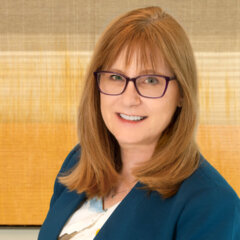Rules for accessibility compliance are constantly evolving and it’s a company’s responsibility to stay ahead of the curve and ensure digital accessibility on websites and mobile apps. Rather than waiting for customer complaints or threats of legal action to ensure your organization is digitally accessible, consider taking a few simple steps to put protocols in place that make your website and/or mobile app accessible to everyone. Once protocols are in place, maintaining them will become part of your standard operating procedures. Websites and mobile apps are always growing and changing, so maintaining accessibility over time needs to be built into your organization’s process for content and functional updates.
If you are part of a local or state government agency, a new regulation lays out specific standards for accessibility and a 24-36 month timeline allowed for implementation. But even if you aren’t part of a local or state government agency, private businesses are still required to provide “effective communication” to people with disabilities.
There are several best practices for compliance. Here’s an outline of steps to follow on the path to digital accessibility.
- Step 1: Assign team members to champion and lead the process. A high level leader should instigate and oversee the accessibility policies and procedures and report on progress to the C-suite.
- Step 2: Conduct an audit using both automated and manual testing. An initial audit of your web and mobile application platforms will identify where design and programming changes are needed for compliance. It’s important to note that running audits of your web and mobile application platforms periodically is the best way to ensure that no new errors have popped up, especially if your website or app requires frequent updates in content or design.
- Step 3: Train developers and content creators. Developers and content creators will need personalized training so they can anticipate, identify, design and program to the new standards. Expertise should be available on demand.
- Step 4: Weave accessibility into your content. When making posts to your website or app, make sure you check that your content is accessible before posting it. Implementing a gatekeeping process will stop inaccessibility from creeping into your website or app. Some things to always check for are including alt text, image descriptions, and captions and transcripts for multimedia content.
- Step 5: Set Priorities for Remediation. Identify what is most important to your customers and what barriers are most significant and work on those first.
- Step 6: Express your commitment to accessibility. Develop and disseminate a formal accessibility policy and add an accessibility statement to your online presence. It lets everyone know that you have made accessibility a priority, but it also gives people a path to make requests or complaints. You will need a clear process for response and escalation of these issues as needed.
Remember, becoming accessible is not just a one-time effort. Once everything is in place, you still need to schedule periodic audits, including both automated and user testing. It is particularly important to involve “user testers” – people with disabilities who can explore your systems and tell you exactly where barriers exist. This valuable feedback can help identify the real-world problems and establish priorities.
ABOUT EVE HILL
Eve Hill is one of the nation’s leading civil rights lawyers, known especially for her work with clients with disabilities and LGBTQ+ clients. She has been recognized by Law360 as one of just 12 “Titans of the Plaintiffs’ Bar” for 2023, as well as by Lawdragon as one of the 500 Leading Lawyers in America (2022 and 2023). Her wide-ranging experience complements Brown, Goldstein & Levy’s decades of dedication to high-impact disability rights cases and its advocacy on behalf of individuals with disabilities and their families. Eve chairs the Board of Trustees for the Judge David L. Bazelon Center for Mental Health Law, a national legal advocacy organization advancing and protecting the civil rights of adults and children with mental illness. Eve also leads Inclusivity, BGL’s Strategic Consulting Group, which works with organizations to promote the education, engagement, and employment of people with disabilities. Learn more about Eve here.
ABOUT BROWN, GOLDSTEIN & LEVY
Founded in 1982, Brown, Goldstein &; Levy is a law firm based in Baltimore, Maryland, with an office in Washington, DC. The firm is nationally recognized in a wide variety of practice areas, including complex civil and commercial litigation, civil rights, health care, family law, and criminal defense. Above all else, Brown, Goldstein & Levy is a client-centered law firm that brings decades of experience and passionate, effective advocacy to your fight for justice.
